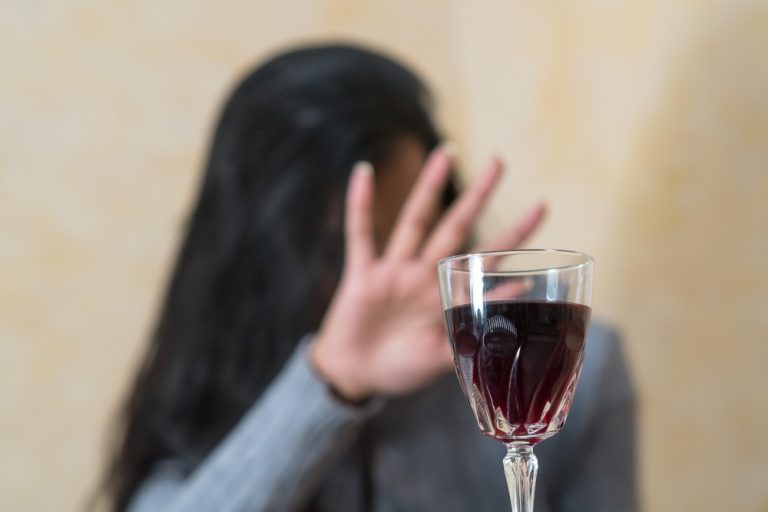Beer Good For Kidneys
Contents
However, obesity, smoking, genetics, gender, and age can also increase the risk . The kidneys are small but powerful bean-shaped organs that perform many important functions. They are responsible for filtering waste products, releasing hormones that regulate blood pressure, balancing fluids in the body, producing urine, and many other essential tasks . Increased alcohol consumption over time didn’t lower the risk in men who already had a couple drinks a day, so moderation is the key word here.

It is not suitable for use as a treatment for any disease because of the risks involved. If you drink alcohol during your chronic kidney disease treatment, you may experience a sharp drop in blood sugar levels. It is a condition that affects a person’s daily activities.
Beer consumption has been shown to lower the risk of developing kidney stones. In addition to increasing the volume of your urine, you can dilute it with water and beer. Caffeine-containing compounds found in hops in beer may prevent bone resorption. Kidney stones can be prevented because calcium secretion is disrupted in the urine. Kidney stones and chronic kidney disease are two diseases in which alcohol consumption can put the kidneys at risk.
Beer strengthens your bones.
Uric acid content – Alcoholic beverages, particularly beer, are high in purines, which are the building blocks of uric acid. Purines can lead to uric acid kidney stones forming, and beer could exacerbate problems with high purine levels. Uric acid stones – Uric acid stones occur due to excessive uric acid in the body, leading to small stones forming, which can cause pain when you pee, where in some cases, blood also appears. Foods rich in purine like red and organ meats, beer/alcoholic beverages, and shellfish often spike uric acid levels in the body. The Centers for Disease Control estimates that most American adults drink alcohol.
The kidneys require a drink of water to function properly. There are numerous advantages to drinking water, including zero calories, perfectly hydrated beverages, and a lower price. It is critical to drink water every now and then to maintain healthy kidney function, especially if you are suffering from kidney disease at an early stage. Alcohol is one of the most commonly abused drugs in the world. People who have kidney disease often wonder “is alcohol good or bad for kidneys? ” Almost every organ of the body is harmed by alcohol consumption.
“Liver disease can have significant impacts on the kidneys,” says Dr. Bobart. Drinking alcohol to excess is linked to several health problems, including liver disease and an increased risk of some cancers . Current guidelines recommend choosing natural foods instead of processed foods that have phosphorus added to them. Your body absorbs less of the phosphorus from natural foods, and natural foods offer better nutrition overall. For many years, people who needed to limit phosphorus were told to limit healthy foods such as whole grains, legumes and other plant-based foods.

So, if your dietician tells you you can’t have ANY soft drinks they are wrong and have not done their research (I have seen this many times, ppl jump to conclusions w out getting facts/info). Heavy drinking is linked to cirrhosis, fetal alcohol syndrome, hypertension, malnutrition and pancreatitis. Some studies show that beer consumed in moderation may be beneficial to your health. Our patient surveying indicates some success in a very limited number of kidney stone patients. When choosing a beverage, water is still the best for clearing out the stones.
A “standard drink” is defined as 12 ounces of regular beer, 5 ounces of wine, or 1.5 ounces of 80-proof distilled spirits. People who drink too much are more likely to have high blood pressure. And medications for high blood pressure can be affected by alcohol. More than two drinks a day can increase your chance of developing high blood pressure. Drinking alcohol in these amounts is a risk factor for developing a sign of kidney disease, protein in the urine .
Additionally, red grapes are high in resveratrol, a type of flavonoid that has been shown to benefit heart health and protect against diabetes and cognitive decline . Sea bass is a high quality protein that contains incredibly healthy fats called omega-3s. In particular, these sweet berries contain antioxidants called anthocyanins, which may protect against heart disease, certain cancers, cognitive decline, and diabetes . Dietary restrictions vary depending on the level of kidney damage. Brain tumor, breast cancer, colon cancer, congenital heart disease, heart arrhythmia.
What Counts As Water
Many sources of protein, such as red meat, pork, chicken, poultry, fish, and eggs, increase the amount of uric acid you produce. Eating large amounts of protein also reduces a chemical in urine called citrate. Citrates job is to prevent the formation of kidney stones. Alternatives to animal protein include quinoa, tofu , hummus, chia seeds, and Greek yogurt. Since protein is important for overall health, discuss how much you should eat daily with your doctor.
So, if someone still has about 2 cups of urine output, it would be the 1 quart , plus the two cups. Again, though, this is just the general recommendation and a physician and/or dietitian can help you more specifically. Determine which stage of kidney disease youโ€™re in by calculating a glomerular filtration rate and start managing your health. Such foods, which include spinach, beets, and almonds, obviously raise oxalate levels in the body. However, moderate amounts of low-oxalate foods, such as chocolate and berries, are okay. If you’ve ever passed a kidney stone, you probably would not wish it on your worst enemy, and you’ll do anything to avoid it again.
Are Carrots Good For Kidneys
Please consult a physician for specific treatment recommendations. When experts talk about one drink, they are talking about one 12-ounce bottle of beer, one glass of wine , or one shot (1.5 ounces) of “hard liquor.” Silicon is thought to protect the brain from the harmful effects of aluminum in the body one of the possible causes of Alzheimers. Studies dating back to 1977 have suggested that beer drinkers can be up to 23pc less likely to develop cognitive impairment, Alzheimer’s disease or other forms of dementia. In the urinary tract, its not normal to find bacteria, but sometimes, they enter through the opening in the urethra. Under certain circumstances, bacteria can settle in and flourish, which leads to an infection.
- The liver must constantly supply blood to the kidneys in order for them to function properly.
- In fact, about a quarter of drinkers reported they had done this on at least one day in the past year.
- Water and beer both work to dilute your urine and increase its output.
- Kidney stones are removed out of the body through urination.
If you are taking any medication that can harm your liver, you should not consume beer. Creatinine is produced as a waste product when muscles are broken down. Creatinine levels tend to rise when the body is unable to break down muscle properly. Consumption of alcohol, on the other hand, does not increase creatinine levels (27 mol/L) or alcohol consumption. However, raising the cutoff value for increased creatinine levels revealed a negative correlation.
Depending on the results of a doctor’s medical examination, a diagnosis of kidney damage can be made. The liver must constantly supply blood to the kidneys in order for them to function properly. Kidney problems caused by alcohol can also have an impact on liver health. After four weeks of abstinence from alcohol, a significant number of kidney-related problems caused by drinking can be avoided. If you or a loved one has kidney problems caused by drinking alcohol, it is critical to stop drinking. It is possible to damage your liver if you consume alcohol and take medications that may harm it.
Small stones in the kidney do not usually cause problems, so there is often no need to remove them. A doctor specialising in the treatment of kidney stones is the best person to advise you on treatment. A 2015 meta-analysis from the National Kidney Foundation found that people who produced 2 to 2.5 liters of urine daily were 50% less likely to develop kidney stones than those who produced less. It takes about 8 to 10 8-ounce glasses of water daily to produce that amount. Sometimes, kidney stones block the flow of urine leading to urinary obstruction and cause damage to the kidney.
Kidney pain, kidney stones and kidney infections: an alcohol link?
Lemon juice – Lemons contain citrate, which prevents calcium oxalate stones from forming. It can also break down small stones, allowing them to pass easily with the urine. Dr. Blake Shusterman, a Kidney Kitchen® contributor known as The Cooking Doc®, shared his top five drinks for people with kidney disease on our blog.
Having too much of anything is going to be bad for your study offers clue as to why alcohol is addicting. That being said, beer is perfectly fine to consume in moderation. So, while water is an effective liquid for flushing your kidneys, it seems that beer has a slight advantage due to the compounds in the hops.
My blood creatinine of 1.60 mg/dL, age 72, male, diabetic with HbA1c of 5.5%. Does this indicate CKD and if so, what stage and what should I do? CKD is a condition that has an impact on a person’s daily life. Kidneys play an essential role in determining the rate at which metabolic reactions take place by regulating acidity.
Importantly, people may have varying definitions of what drinking in moderation means. For this reason, it is important to be aware of what moderate drinking truly is. Further, you should never start drinking as a way to avoid kidney stones.
This can lead to dehydration, which can impair kidney function. Drinking alcohol may also increase your risk of developing kidney stones. Primary hyperparathyroidism and gout have also been linked to an increased risk of kidney stone formation. You can drink light or non-alcoholic beers in moderation every once in a while as a way to regularly flush your kidneys. Citrate, a salt in citric acid, binds to calcium and helps block stone formation.
